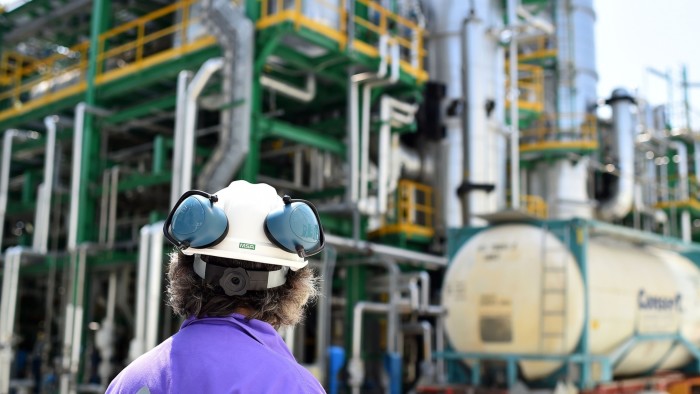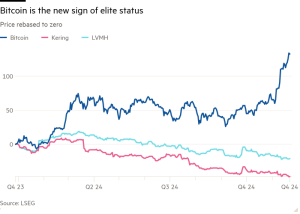European plastics makers shut plants as production declines sharply

Unlock the Editor’s Digest for free
Roula Khalaf, Editor of the FT, selects her favourite stories in this weekly newsletter.
European plastics manufacturers are closing plants amid a deep decline in production as EU companies struggle to compete with a global glut of cheap material.
Plastic production in Europe declined 8.3 per cent in 2023, according to figures published by Plastics Europe, the industry body, on Monday. Mechanical plastics recycling — the most common form of plastic recycling in Europe — has also declined for the first time since 2018 because of a drop in demand, Plastics Europe said.
The drop was deeper than expected, said Virginia Janssens, managing director of Plastics Europe, adding to concerns among energy-intensive industries about “deindustrialisation in Europe” leading to a heavier reliance on “less sustainable imports”. Germany is the continent’s largest plastics producer.
The fall in Europe contrasts with a 3.4 per cent increase globally as countries including China and the US scale up plastics production. China was responsible for 60 per cent of petrochemical capacity increases in 2023, according to data provider S&P Global.
The European plastic industry’s share of the global market has declined from 28 per cent in 2006 to 12 per cent last year, the data showed.
Ambitious climate targets set during the European Commission’s previous term, which ended with EU-wide elections in June this year, have spawned a wave of regulation that companies have complained is strangling growth.
In a report on European competitiveness published in September, former European Central Bank president Mario Draghi attributed much of the blame for the EU’s flagging economic growth to high energy prices, “restrictive” regulations and lower cost production abroad.
The glut of virgin plastic outside Europe has also undermined the business case for recycled material.
Last month Plastics Recyclers Europe, an industry body, said that the “downward trend in the European plastics recycling market is alarming” and was “driving many recycling companies out of business”.
Companies including energy major ExxonMobil and chemicals company Sabic have said this year that they would shut petrochemicals plants in Europe. Chemicals businesses LyondellBasell, Versalis and Trinseo have said they would review or close facilities.
Rob Ingram, chief executive of Ineos’s business making olefins — hydrocarbons used as a raw material for chemical and polymer products — and polymers, said Europe’s bureaucratic and regulatory burden was a “self-inflicted wound”.
Without new investment in Europe, producers would not be able to fund the transition to more sustainable production, he said.
“A lot of our competitors have either closed or announced strategic reviews of European assets,” he said. “If everyone packs up shop and goes elsewhere, we’re not going to have a [green] transition.”
Ingram added that while demand for new plastics was sustained in Europe, investment in new capacity was instead flowing to the US and Asia.
“Instead of them being made in Europe, where we have fairly stringent environmental control . . . these materials may be produced elsewhere . . . or shipped halfway around the world to be consumed here,” he said, adding: “It’s completely counterproductive.”
Janssens said the industry wanted targets for recycled content in everything from packaging to electric vehicles “because that will drive demand for circular plastics and that will help us”.
“We also are calling upon policymakers for some urgent [help] — whether it’s into fiscal or economic measures — to see what they can do to really increase that business case for circular plastics investments in Europe,” she said.
#European #plastics #makers #shut #plants #production #declines #sharply






